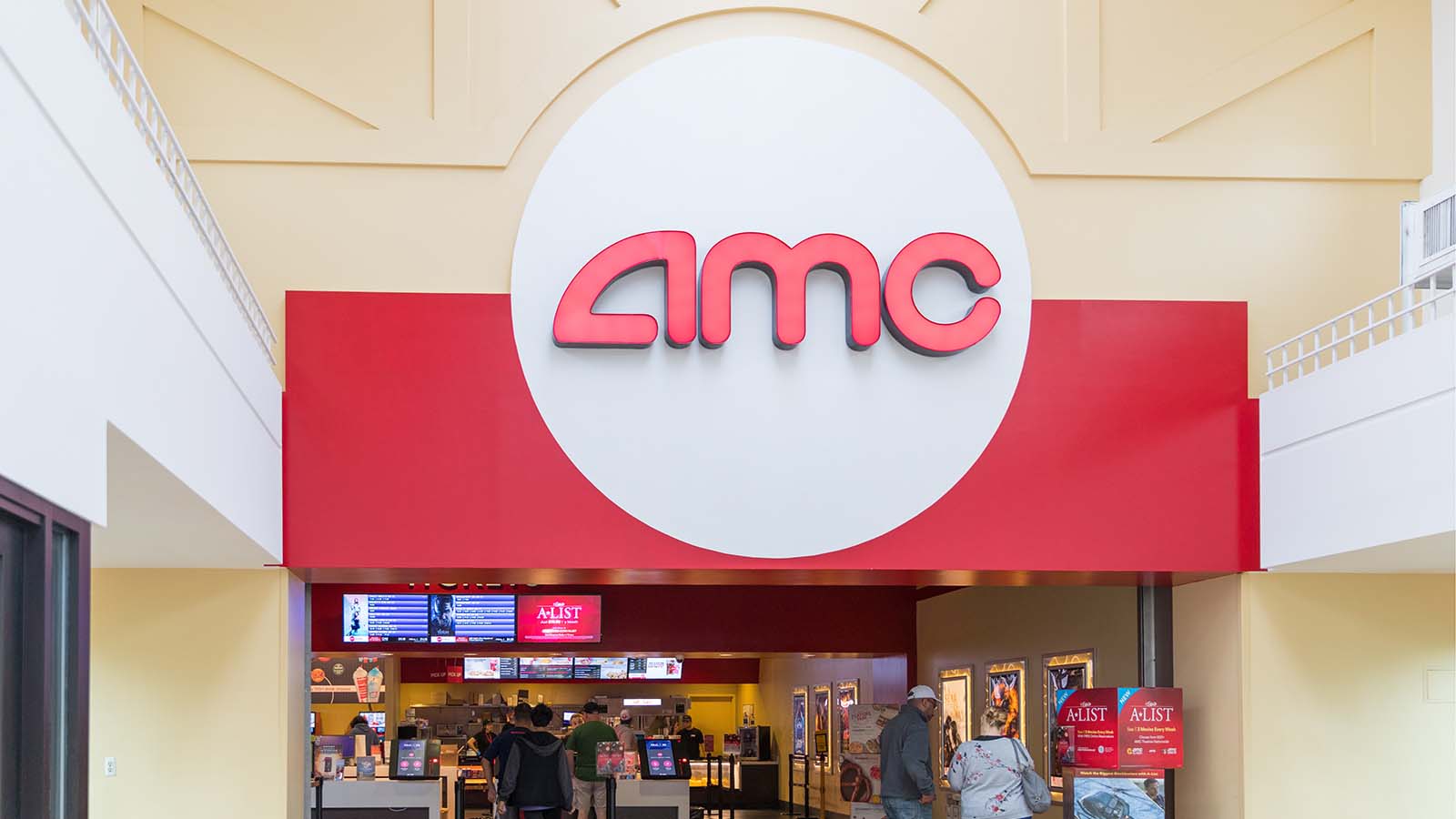As I write this, AMC Entertainment (NYSE:AMC) stock trades just above $14. By the time you read this, the price no doubt will be different … potentially much different.

After all, AMC stock has made a massive move over the last few sessions. It gained 66% in three days before a 225% (not a typo) rally in early morning trading Wednesday.
There is a fundamental catalyst here. AMC announced on Monday morning that it had raised $917 million in new capital since the middle of December. The release quoted CEO Adam Aron as saying “any talk of an imminent bankruptcy for AMC is completely off the table.”
But it’s not the capital raise that is driving Wednesday morning’s huge rally (on huge volume). Rather, it appears to be driven by the suddenly famous (or infamous) WallStreetBets forum on Reddit. The same group seems to have led a massively engineered squeeze in GameStop (NYSE:GME), and then turned their sights on AMC, another heavily shorted stock.
Indeed, #SaveAMC is trending on Twitter (NYSE:TWTR). And, as that hashtag suggests, part of the appeal in going after AMC stock is the desire to put it to purportedly predatory hedge funds that are looking to profit off the demise of the movie theater chain.
Coordinated buying of the stock is supposed to engineer a “short squeeze,” which will lead to huge losses for funds betting against GME, AMC and other names. (Indeed, Redditors are taking credit for forcing hedge fund Melvin Capital into its own capital raise.)
But a short squeeze alone isn’t causing the current spike in AMC stock. It’s more complicated than that. The real causes suggest that the rallies in AMC stock and other “WSB names” are going to reverse at some point — likely in an equally violent fashion.
Short Squeeze and Gamma Squeeze
To some extent, there likely is a short squeeze going on with AMC stock. The most recent data suggests that roughly 36% of shares outstanding are sold short (as of mid-January, before the massive rally of late).
As AMC stock rises, those shorts may choose to cover to limit losses (or, in this case, salvage profits; AMC hit an all-time low this month). Others will face rising margin requirements that lead to forced liquidations.
There’s more going on here, however. AMC still has a low cost to borrow shares; squeezes usually see a far higher cost to borrow, since a squeeze generally occurs when supply is limited. And the 37% short interest is far lower than the 100%-plus GME stock saw before its epic run.
Rather, what we’re simply seeing is coordinated buying likely amplified by a so-called “gamma squeeze.” Market makers in AMC options have to buy AMC stock to hedge the calls they sell. And as the stock rises, they have to buy even more stock to hedge those calls.
A cursory look at AMC options shows that a gamma squeeze almost certainly is driving Wednesday’s move. Options volume for the February expiration is massive: over 31,000 call contracts at the 5 strike alone.
The contract just at a single strike and a single expiration covers nearly 3% of AMC’s total shares outstanding. And with put volume far lower, it’s almost certain that a gamma squeeze is the driving factor.
What Happens to AMC Stock?
But here’s the problem with a gamma squeeze: The same dynamics that lead the underlying stock up can lead it right back down just as quickly.
Once call buying dries up and the stock turns south, the action reverses. Market makers sell the stock as options prices recede to match their hedge to their option exposure.
Call buying will dry up at some point. It simply has to. Without fundamental support, these prices, for both AMC stock and options, can’t hold forever. This epic rally in AMC stock — at least Wednesday’s portion of it — is an engineered spike. The capital raise merited some upside, but not what is now a rally of over 350% from levels of just a week ago.
After all, the problems facing AMC are real. They’re not the fault of short-sellers. And they predate the novel coronavirus pandemic. AMC closed 2019 with $4.7 billion in debt. Growth that year was minimal.
AMC and other theater operators expended huge amounts of capital on theater upgrades, but they didn’t stem the now multi-decade trend of lower movie theater attendance. The ongoing dominance of Netflix (NASDAQ:NFLX) and the explosion of new streaming services from Disney (NYSE:DIS) and others likely only accelerate that trend.
So it wasn’t short sellers that sent AMC stock to an all-time low this month. It wasn’t the pandemic that caused the stock to close 2019 at $7.24, down almost 60% from its initial public offering price in late 2013.
Rather, AMC, even before the pandemic, was a company with huge financial leverage and essentially zero revenue growth. That’s an enormously dangerous combination, and one that buyers rightly wanted little part of.
When the Smoke Clears
And when the gamma squeeze is over, and “YOLO” traders have moved on to their next target, it’s on the fundamentals that AMC will trade. Those fundamentals are not promising, particularly with the company still dealing with the effects of the new pandemic.
Indeed, it’s worth reviewing the press release about the capital raise closely. Note that CEO Aron only said that “imminent” bankruptcy had been averted. Elsewhere, AMC wrote that “the Company estimates that its financial runway has been extended deep into 2021.”
Simply getting to the end of this year isn’t enough. With debt now over $6 billion (including portions of that raise), the long-term financial outlook remains perilous. In fact, AMC is paying interest on some of the new debt “in kind,” meaning it isn’t making cash interest payments.
That’s not something healthy companies do. And as part of that raise, AMC sold stock at a price of just $3.07, less than one-fifth the price at the moment.
Simply put, AMC is a challenged company. Traders buying near-term call options aren’t saving the company. They’re not heroically battling evil short sellers. Short sellers aren’t the ones who put billions of dollars in debt on the balance sheet. They didn’t buy Carmike Cinemas for over $1 billion in a deal that looks simply awful in retrospect.
That’s not to say the traders flooding into AMC stock are doing anything wrong. It at least looks like they’re having an awful lot of fun, and the moves in AMC, GME and other stocks will be a story for the ages. But all fun comes to an end, and when it does, AMC stock is likely to give back a big chunk of these gains.
On the date of publication, Vince Martin did not have (either directly or indirectly) any positions in the securities mentioned in this article.
After spending time at a retail brokerage, Vince Martin has covered the financial industry for close to a decade for InvestorPlace.com and other outlets.
